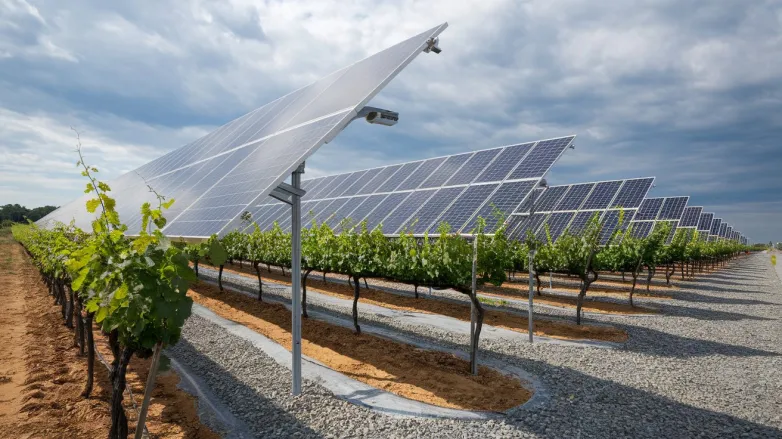BlueWave Unveils 19.8 MW Agrivoltaic Projects in Massachusetts
- BlueWave’s innovative agrivoltaic projects in Massachusetts merge solar energy with farming, powering communities while nurturing the land—setting the stage for a sustainable future!

BlueWave, a US solar developer, has launched five agrivoltaic projects in Massachusetts, totaling 19.8 MW of generation capacity and 29.7 MWh of storage. The projects, located in Palmer, Haverhill, Dighton, and Douglas, will utilize dual-use farming practices that allow agricultural operations to continue beneath the solar arrays. BlueWave will own and operate these projects, benefitting from the state's Solar Massachusetts Renewable Target (SMART) incentives.
Lowell General Hospital is set to be an anchor customer for the Palmer and Haverhill sites, receiving 50% of their energy capacity via community solar bill credits. BlueWave anticipates that the projects will be operational by the end of 2024 and is actively pursuing further developmental opportunities in Massachusetts and surrounding states, with plans for nearly 500 MWdc of solar in the pipeline.
How will BlueWave's agrivoltaic projects impact farming and energy usage in Massachusetts?
Impact of BlueWave's Agrivoltaic Projects on Farming and Energy Usage in Massachusetts
- Sustainable Farming Practices: The dual-use farming techniques employed in these projects allow farmers to maintain their agricultural production while generating clean energy. This approach helps protect farmland from development while optimizing land use.
- Enhanced Crop Yield: Studies suggest that shading from solar panels can improve microclimates, leading to potentially higher yields for certain crops due to reduced heat stress and increased moisture retention. Farmers may benefit from improved crop resilience.
- Diversified Revenue Streams: Farmers participating in agrivoltaic systems can diversify their income by earning revenue from both crop production and lease payments for the space occupied by solar panels. This financial stability can be crucial for small and medium-sized farms.
- Economic Growth: The construction and operation of BlueWave’s projects will create local jobs and contribute to economic development in the communities of Palmer, Haverhill, Dighton, and Douglas. This includes both skilled labor for solar installation and roles in ongoing operations and maintenance.
- Community Solar Benefits: With Lowell General Hospital as an anchor customer receiving community solar credits, the projects promote equitable access to renewable energy for local communities, allowing residents to benefit from reduced energy costs and increased energy security.
- Energy Storage Integration: The inclusion of 29.7 MWh of storage capacity in these projects helps to stabilize the energy grid by allowing excess energy generated during the day to be stored and used during peak demand times or when solar generation is low.
- State Incentives and Policy Support: The alignment with Massachusetts’ Solar Massachusetts Renewable Target (SMART) program highlights the state's commitment to expanding renewable energy. This partnership not only supports the agrivoltaic model but also incentivizes further investments in clean energy initiatives.
- Long-Term Environmental Benefits: By integrating renewable energy production with agriculture, these projects contribute to the reduction of greenhouse gas emissions and enhance biodiversity by promoting habitat preservation through responsible land use.
- Scalability for Future Projects: BlueWave’s success with these initial agrivoltaic projects could serve as a model for similar initiatives across Massachusetts and other states, potentially leading to a significant increase in solar energy production in agricultural settings nationwide.
- Community Engagement: The development process involves local stakeholders, ensuring that community interests and needs are taken into account in project design and implementation, fostering a sense of ownership and support among residents.
- Resilience Against Climate Change: As climate change poses risks to both agriculture and energy reliability, these projects represent a proactive step towards creating resilient systems that support both food security and sustainable energy production in the region.
Also read

